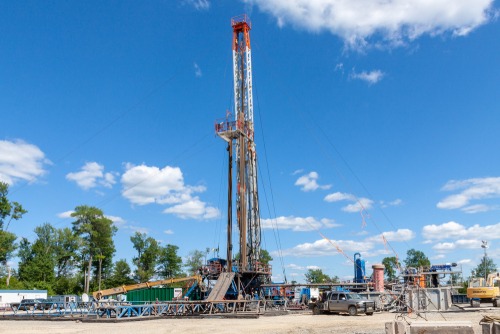
Appalachia energy leaders and U.S. Sen. Elizabeth Warren (D-MA) are duking it out over skyrocketing energy prices across America.
Leaders from Appalachia’s natural gas and oil sector called the senator’s recent market claims “deeply misguided and false,” while Warren said that price increases are being driven by energy companies’ “corporate greed and profiteering.”
Marcellus Shale Coalition President Dave Callahan joined Gas & Oil Association of West Virginia Executive Director Charlie Burd and Ohio Oil & Gas Association President Matt Hammond in urging Sen. Warren and others to support increased domestic energy exports, which encourages production growth, strengthens U.S. energy security, provides a path toward reducing energy poverty, and is a primary factor in reducing greenhouse gas emissions domestically and abroad, according to a Nov. 30 letter they sent to the lawmaker.
“Your recent attempts to use the U.S. energy industry as a scapegoat for rising energy prices is a deeply misguided, headline-grabbing ploy,” wrote the executives — whose companies collectively represent roughly 40 percent of natural gas production in the United States. “Serious solutions to lasting energy affordability, reliability, and security come from policies that encourage responsible domestic natural gas development, pipeline infrastructure modernization, and export growth.”
The organizations’ leaders detailed how efforts to ban natural gas production and use, halt pipelines, or curtail energy exports will have a crushing impact on consumer budgets, according to their letter.
“Natural gas, just like any commodity, experiences price swings influenced by a variety of factors, including political and regulatory environments,” the leaders wrote. “While energy costs have risen as of late, the U.S. shale revolution is the primary driver of the affordable, reliable and abundant natural gas enjoyed by homeowners, small businesses, and manufacturers for the past dozen years.”
In Pennsylvania, natural gas prices are currently less than half compared to the early 2000s, according to state data compiled by the Marcellus Shale Coalition, with wholesale natural gas prices down between 50-75 percent since 2008. Further, the letter said Ohio consumers saw nearly $40 billion in savings between 2008-2018 thanks to affordable natural gas, according to a Consumer Energy Alliance report.
In their letter, Callahan, Burd, and Hammond added that despite the recent uptick in prices, Americans have been able to save a bundle on home energy, all while the U.S. has become not only energy secure, but a net energy exporter for the first time since the Eisenhower administration.
“The U.S. is blessed with an energy abundance that can sustainably fuel modern society for generations to come,” according to their letter. “In finding ways to address consumer energy cost increases at home, political leaders should look to us — rather than grovel to OPEC and Russia — for long-term energy solutions.”
The executives’ letter follows several identical letters Warren sent out on Nov. 23 to Ryan Lance, CEO of ConocoPhillips; Toby Z. Rice, chief executive officer at EQT; ExxonMobil CEO Darren Woods; Coterra CEO Thomas E. Jordan; David Lawler, president at BP America Inc.; Antero Resources CEO Paul M. Rady; Domenic J. Dell’Osso, Jr., CEO at Chesapeake Energy Corp.; Jeff Fisher, CEO of Ascent Resources; Southwestern Energy CEO Bill Way; Jeffrey Ventura, CEO at Range Resources Corp.; and Occidental Petroleum Corp. CEO Vicki Hollub.
“I am writing regarding my concern about rising natural gas prices for American consumers, the impact this will have for families struggling to pay their bills and keep their homes warm this winter, and the extent to which these price increases are being driven by energy companies’ corporate greed and profiteering,” she wrote in her correspondence, citing recent Wall Street Journal reports that energy companies are exporting more natural gas and limiting domestic supply that will raise winter energy prices for Americans.
For example, ConocoPhillips reported a more than 100-percent increase in the realized price of natural gas compared to 2020, wrote Warren, while ExxonMobil reported that rising prices could lift third-quarter profits by up to $1.5 billion. Meanwhile, BP’s trading team made more than $500 million during the third quarter of 2021 due to gas crises, she wrote.
Warren asked each of the executives for detailed explanations about their decisions to export record amounts of natural gas, among other questions, and requested their responses no later than Dec. 7.
“The cause of rapidly rising energy prices for consumers and manufacturers is clear: some of the nation’s largest and most profitable oil and gas companies are putting their massive profits, share prices and dividends for investors, and millions of dollars in CEO pay and bonuses ahead of the needs of American consumers and the nation’s recovery from the pandemic,” wrote Warren.